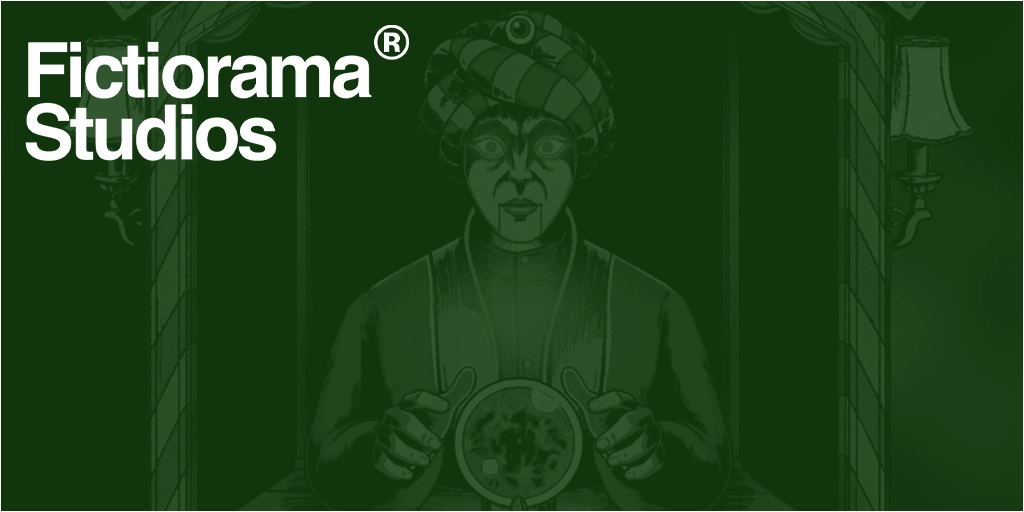
Whoever said that mixing social criticism and videogames was a bad idea, doesn’t know Fictiorama Studios. This is the story of three brothers who grew up with classic adventure games and dreamed of creating their own. Far from delving into fictional worlds with light-hearted stories, the Oliváns make use of dystopia as an excuse to explore the darker sides of the world we live in. From their first title to their last, they do it openly and place the player at the heart of the story to influence the course of events.
It all started with the tale that gave birth to the point-and-click adventure Dead Synchronicity: Tomorrow Comes Today (2015), written by Alberto Oliván. In this story, there’s an apocalyptic event and mysterious pandemic that lead the society to a gradual decay. Those who survive are concentrated in refugee camps with tight security control, resulting in concentration camps where people live with violence and death.
The game leaves behind the optimism and nonsense humor typical of the most famous adventures from the golden age of this genre. They feel closer to titles such as Sanitarium or I Have no Mouth and I Must Scream. As Fictiorama Studios mentioned several times, it was very inspiring for them to see The Cat Lady succeed in 2012 — here, Harvester Games explored an horror setting defined by topics like solitude, depression and suicide, and how to find hope for a better future.
It’s no longer just about solving puzzles that encourage players to follow the story, but also about creating an emotional connection with the protagonist’s tragedy. A kind of tragedy that, if we ignore the supernatural elements, is very common in the real world. In addition to this, Fictiorama always wanted to make adventures where every action has its meaning and consequences for the whole story.
With these ideas in mind, the small team launched the Kickstarter and Steam Greenlight campaigns for Dead Synchronicity in 2014. The game clearly targeted players that might be fond of classic point-and-click adventure games, as it even had the famous artist Alfonso Azpiri to make an alternate cover as a reward for Kickstarter backers.

Dead Synchronicity got funded at 114% and players could enjoy it on Steam the year after, along with the text-based prequel game Dead Synchronicity: The Longest Night, still available for free on Fictiorama’s website. A sequel to Tomorrow Comes Today, named The Underground Highways, was in production as Fictiorama prepared for their next big release. Still, the studio hasn’t mentioned any new details in 2023.
After their first game, the Oliváns felt in the mood to make something new. So they mixed their favorite game genre with resource and time management in the digital voyeur simulator Do Not Feed The Monkeys (2018). It’s a narrative-driven adventure where players invade others’ privacy for fun while doing their best to survive on junk jobs and unhealthy food within the four walls of a ramshackle rental home. The only rule is not to interact with the victims, or you’ll get exposed.
In the same line as Papers, Please and Beholder, Do Not Feed The Monkeys takes inspiration from Orwell’s 1984, covering topics such as surveillance, power abuse and dehumanization through its acid humor. Both this game and its recent sequel Do Not Feed The Monkeys 2099 (2023), also may hold criticism of a world that pushes us into self-isolation and our behavior on social media, where we enjoy sliding into others’ lives.
With The Fabulous Fear Machine (2023), a deck-building RTS game, Fictiorama Studios took a step further by using Europe as a setting for the story. Comparisons with reality are now inevitable — with a pulp style usually seen in horror comic books and films, the team explores what Engadget defined as “the horrors of propaganda”.
As Masters of the Machine, players must carefully investigate the biggest fears of the population and craft legends that exploit them to the fullest. Some of them will exploit religious beliefs, some others may be related to racial prejudices… At the same time, it will be necessary to fight against the forces of good that want to neutralize their influence. The game features several Masters to embody, with their own ambitions and goals.
With this amazing catalog full of references to real world issues, what can we expect next from Fictiorama? We’re dying to know.
Activity funded by the Spanish Ministry of Culture and Sport.

Find Games from Spain on
Share
